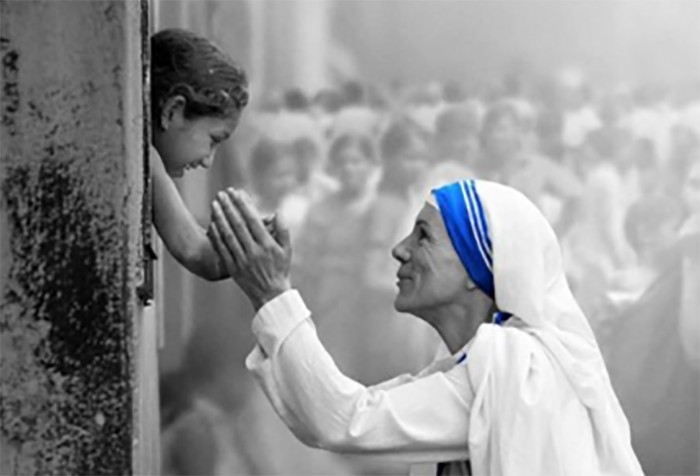
When actress Juliet Stevenson was cast to play Mother Teresa in “The Letters” she immediately started to research the legend and was admittedly very nervous. The film is an intimate portrait about her life, which chronicles the last forty years of the late Nobel Laureate and humanitarian's life as told through letters she herself wrote over a four decade period. Written and directed by William Riead and staring the renowned British actress Juliet Stevenson, Academy Award nominee Max Von Sydow and Golden Globe winner Rutger Hauer, the movie presents a view of a complex woman who suffered more than we were aware, leaving little doubt by the end of the film why she was considered by the Vatican for sainthood.
We had the chance to speak to Stevenson about how the role changed her and what she discovered about Mother Teresa, India and self-sacrifice.
Latin Times: How do you prepare for a role like this?
Juliet Stevenson: Well, first of all I realized I didn’t really know that much about her, for instance, I always thought she was Indian because she spent most of her life there but she isn’t, so I had to learn a lot about her. I read so much about her; I wanted to get it right and luckily there was so much material. I watched hundreds of hours of documentary footage and interviews with her; observed how she walked, talked to people on the streets and showing people around her orphanages. I really analyzed her body language, which is very interesting and expressive.
LT: How about the accent?
JS: It’s actually a very strange mixture; it’s partly Albanian, where she came from, partly Indian English, partly Hindi. It’s got lots of colors and tunes and that was fascinating, so I worked quite hard with the accent coach on that.
LT: What else did you discover about her?
JS: I found an order of very elderly nuns in the edge of London some of who had actually worked with her in Calcutta and told me what it was like. That was very interesting as well.
LT: In times like these it feels like saint-like figures such as Mother Teresa, and yet they are more and more scarce, why do you think that is?
JS: I think people like her don’t come along very often and also, we don’t really remember, but it was partly her who drew the whole world’s attention to the poverty in India, and I suppose now we have media everywhere, so we know it’s all over the world. But what we really need is more people like her to say, ‘Well, I’m not going to rely on the government to fix this because they very often don’t, so I’m going to do it myself.’ I think more of that would be a great thing for the world today.
LT: Do you believe we all have a stronger calling, but often we just don’t follow it?
JS: That’s a great question. I think you’re right; I think lots of people do have a calling of the sort, whatever that is. Some people have them and just don’t necessarily act on them. Mother Teresa is somebody who devoted her whole life to her calling and that’s what made her so extraordinary. Hers wasn’t even so much a religious calling as it was working with the poor. She was also quite a groundbreaker in her way: a woman working by herself in poverty in India took a lot of courage.
LT: And how do you feel making this movie change you?
JS: Well, it took me to India, and India is a life changing experience. We filmed a lot of the time in a slum in Goa where we went every day for weeks and weeks, and, I’ve seen a lot of poverty, of course, but I hadn’t been up against it so closely in such an extreme form of it. Often it was quite overwhelming but what stood out the most was the extraordinary grace, these people had immeasurable struggles yet walked to the door of their huts smiling and enthusiastic to meet me. It obviously makes you want to do something more practically helpful in the world.
© 2025 Latin Times. All rights reserved. Do not reproduce without permission.




